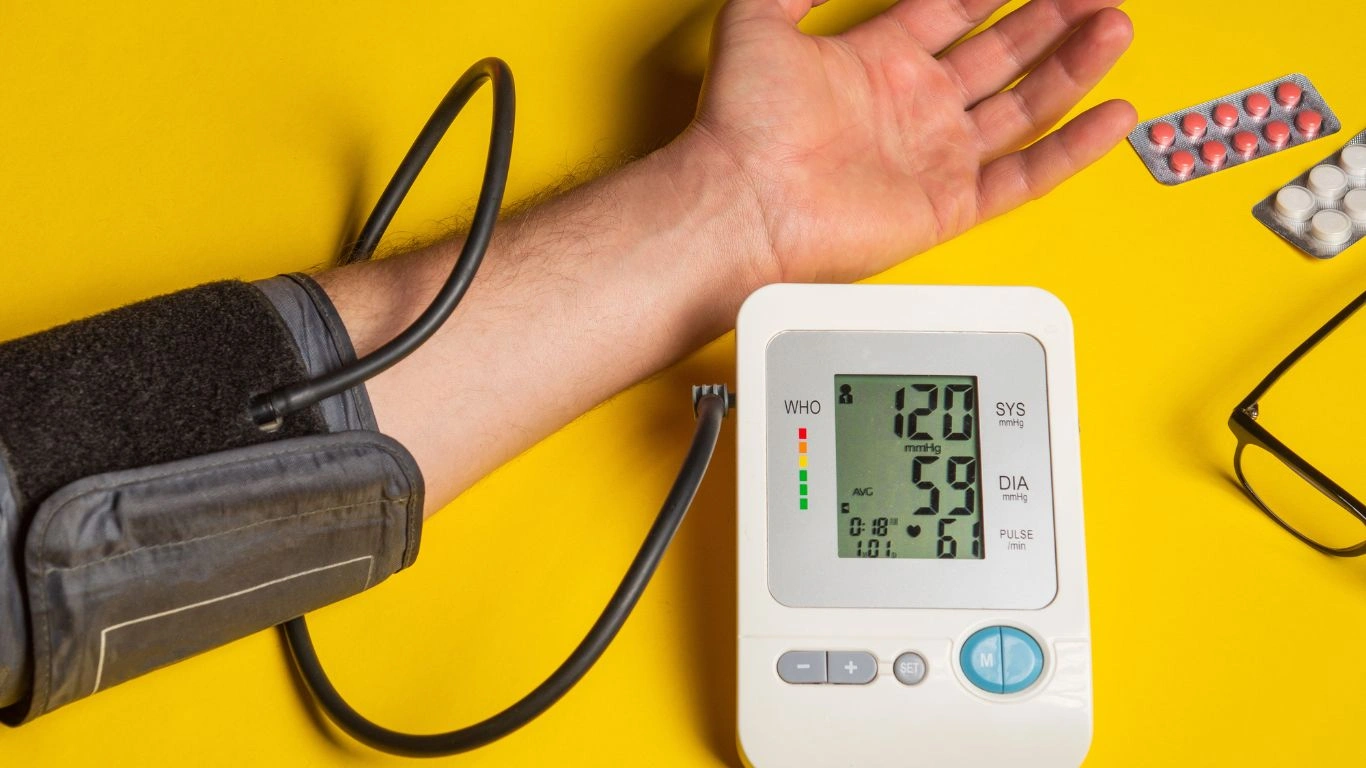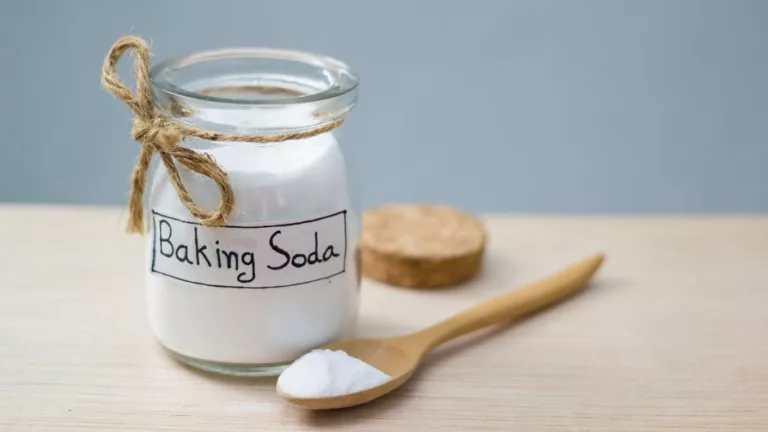How Probiotics Help Stabilize Blood Pressure Naturally and Effectively
Managing blood pressure can sometimes feel like chasing a moving target, especially when lifestyle changes and medications don’t always do the trick. Over the years, as an Internal Medicine Physician specializing in hypertension management, I’ve witnessed firsthand how patients often struggle to keep their numbers steady despite all efforts. Interestingly, one area gaining real traction in both research and clinical practice is the role of gut health—and specifically, how probiotics help stabilize blood pressure. This isn’t just a passing fad; it’s a promising avenue backed by emerging science and practical results.
Understanding the Link Between Gut Health and Blood Pressure

You might be wondering, “Gut bacteria and blood pressure? What’s the connection here?” It turns out, quite a lot. The gut microbiome, which is essentially the bustling community of trillions of microorganisms living in our digestive tract, plays a key role in regulating inflammation, metabolism, and even hormone levels—all factors that influence blood pressure. When this microbial ecosystem is out of balance, it can trigger a cascade of physiological issues, including elevated blood pressure.
In my clinical experience, patients who improved their gut health often saw better overall cardiovascular outcomes, even when other risk factors remained. This isn’t just coincidence. The gut lining produces substances that can directly affect blood vessels’ ability to dilate and contract, which in turn influences blood pressure regulation.
How Probiotics Fit Into the Picture

Probiotics are live microorganisms—often referred to as “good bacteria”—that, when consumed in adequate amounts, can restore and maintain a healthy balance of gut flora. While probiotics have long been popular for digestive health, their impact on blood pressure is a newer and exciting frontier.
Research suggests that probiotics may help stabilize blood pressure by:
- Reducing inflammation: Chronic low-grade inflammation is a known contributor to hypertension. Probiotics help modulate the immune system and reduce inflammatory markers.
- Producing beneficial compounds: Certain strains generate short-chain fatty acids (SCFAs) like butyrate, which promote blood vessel health and reduce stiffness.
- Balancing electrolytes: Probiotics can influence the absorption and excretion of minerals like sodium and potassium, key players in blood pressure control.
From my perspective, recommending probiotics as part of a holistic approach to blood pressure management has been a game-changer, especially for patients eager to complement their medications with natural strategies. It’s not a silver bullet, but it’s a powerful tool when combined with diet, exercise, and stress management.
Personal Insights: Seeing Probiotics Work in Real Life
I recall one patient in particular—a middle-aged man with stubborn hypertension despite multiple medications. After discussing his diet and lifestyle, we introduced a probiotic regimen tailored to support his gut health. Over the next few months, alongside other lifestyle tweaks, his blood pressure readings gradually became more stable. He felt more energetic, reported fewer digestive issues, and his inflammatory markers decreased. That kind of improvement wasn’t just encouraging; it reinforced how interconnected our body systems truly are.
The Science Behind Probiotics and Blood Pressure Regulation

Diving a little deeper, the mechanisms by which probiotics help stabilize blood pressure are still being explored, but several key pathways stand out:
1. Modulating the Renin-Angiotensin System (RAS)
The RAS is a hormonal system that plays a crucial role in controlling blood pressure and fluid balance. Some probiotic strains appear to influence this system by producing peptides that act like natural ACE inhibitors, which are commonly used blood pressure medications. This means probiotics might help relax blood vessels and lower pressure naturally.
2. Enhancing Nitric Oxide Production
Nitric oxide (NO) is a molecule essential for blood vessel dilation. Studies have shown that probiotics can increase NO levels, helping to keep arteries flexible and reduce resistance to blood flow—two vital factors in managing hypertension.
3. Regulating the Gut-Brain Axis
The gut-brain axis is a communication highway between the gut and the nervous system. Probiotics can influence this axis to reduce stress responses and sympathetic nervous system activity, both of which can spike blood pressure during chronic stress.
Incorporating probiotics is not just about popping a pill; it’s about nurturing a complex ecosystem inside us that impacts far more than digestion. For anyone serious about managing their blood pressure, understanding and harnessing this connection can open new doors.
What the Research Says: Probiotics and Blood Pressure Evidence

Now, you might be wondering if all this buzz about probiotics and blood pressure is actually grounded in real science—or if it’s just another trendy health claim. Fair question. Fortunately, there’s been an uptick in solid research over the past decade, and it’s painting a pretty promising picture.
Several meta-analyses—which are basically mega-studies that compile data from multiple clinical trials—have shown that daily probiotic intake, particularly for longer than eight weeks, can result in modest but meaningful reductions in both systolic and diastolic blood pressure. That’s a big deal. Even small drops in pressure can lower your risk of heart attack or stroke.
What really stands out to me as a clinician is how probiotics seem to work synergistically with other interventions. I’ve had patients who, after introducing probiotics, saw an extra 5–10 mmHg drop in systolic pressure, beyond what meds and diet were doing. That’s not something to brush off.
Which Probiotic Strains Are Most Effective?
Not all probiotics are created equal. Some strains show stronger results when it comes to supporting cardiovascular health. If you’re looking at how probiotics help stabilize blood pressure, these are some of the best-researched strains:
- Lactobacillus plantarum: Known for its anti-inflammatory properties and ability to improve endothelial function (which helps blood vessels stay flexible).
- Lactobacillus helveticus: Particularly effective thanks to its production of bioactive peptides that mimic ACE inhibitors.
- Bifidobacterium breve: Plays a role in improving metabolic balance and reducing inflammation.
I often tell patients that when choosing a probiotic, it’s not just about the CFU (colony-forming units) count. More isn’t always better. What matters more is strain specificity and consistency. Taking the right strain daily over time is what leads to results.
How to Choose the Right Probiotic for Blood Pressure Support

Navigating the probiotic aisle can feel like standing in front of a wall of cereal boxes—colorful labels, buzzwords, and tons of options. Here’s how I help patients cut through the noise:
- Check the label for strain specificity: Look for the full strain name (e.g., Lactobacillus helveticus R0052), not just the species.
- Go for clinically studied strains: Choose brands that cite peer-reviewed studies or trials related to blood pressure or cardiovascular health.
- Look for third-party testing: Quality control matters. Choose products that have been tested for potency and purity.
- Opt for refrigeration (when needed): Some high-quality strains need refrigeration to stay effective. Read the storage instructions carefully.
Also, don’t forget to check in with a healthcare provider. I always recommend my patients loop me in before starting a supplement—especially if they’re on antihypertensive meds. Probiotics are generally safe, but there can be interactions or adjustments needed.
Real Food Sources vs. Supplements: What’s Better?

So, should you grab a bottle of capsules or head to the fridge for some yogurt and kimchi? Honestly, both have their place. Personally, I lean toward food-first approaches when possible—it’s just more sustainable and gives you added nutrients.
Some of my go-to probiotic-rich foods that may help with blood pressure include:
- Kefir: A fermented milk drink packed with multiple strains of beneficial bacteria.
- Yogurt (with live cultures): Easy to incorporate daily, just watch the sugar content.
- Kimchi & Sauerkraut: Fermented veggies that also offer fiber and antioxidants.
- Miso & Tempeh: Great plant-based sources of probiotics from fermented soy.
That said, some patients don’t tolerate fermented foods well due to histamine sensitivity or digestive issues. In those cases, supplements can offer a clean, controlled alternative. I’ve had several patients experience fewer side effects with capsules compared to jumping into jars of sauerkraut.
Tip from Practice: Start Slow, Observe, Adjust
Whether you’re using food or supplements, it’s smart to ease into probiotics. I often advise patients to start with a half dose or a small serving and increase gradually. This lets your gut adjust and helps you spot any sensitivities early. And trust me—if there’s bloating, gurgling, or changes in bowel habits, it’s not necessarily a bad sign. That’s just your microbiome recalibrating.
Consistency is also key. I’ve seen patients give up too early, expecting results in a week. In most cases, meaningful changes in blood pressure and overall health take time—think weeks or even a couple of months. But when that shift happens? It’s well worth it.
Integrating Probiotics into a Holistic Blood Pressure Management Plan

By now, it’s clear that probiotics can play a supportive role in managing blood pressure. But how do you incorporate them effectively into your daily routine? As someone who’s guided many patients through this journey, I’ve found that a comprehensive approach yields the best results.
Start by identifying probiotic-rich foods you enjoy. Fermented foods like yogurt, kefir, kimchi, and sauerkraut are excellent choices. Incorporating these into meals can be both delicious and beneficial. For instance, adding a serving of kefir to your breakfast or including kimchi as a side dish can make a significant difference.
Supplements are another avenue, especially for those who may not prefer fermented foods. When selecting a probiotic supplement, look for products that specify the strains included and ensure they have been tested for efficacy. Strains like Lactobacillus helveticus and Bifidobacterium lactis have shown promise in supporting cardiovascular health.
Consistency is key. Whether through diet or supplements, maintaining regular intake helps establish and sustain the beneficial effects on your gut microbiome and, consequently, your blood pressure.
Understanding the Broader Impacts of Probiotics on Health

While our focus has been on blood pressure, it’s worth noting that probiotics contribute to overall health in various ways. A balanced gut microbiome supports immune function, aids in digestion, and even influences mood and mental health through the gut-brain axis.
Emerging research suggests that a healthy gut can impact the effectiveness of medications, including those for blood pressure. For example, certain gut bacteria may metabolize drugs differently, affecting their efficacy. This underscores the importance of maintaining a balanced microbiome not just for direct health benefits but also for optimizing treatment outcomes.
Moreover, the anti-inflammatory properties of probiotics can have systemic effects, potentially reducing the risk of other chronic conditions associated with hypertension, such as cardiovascular disease and metabolic disorders.
Final Thoughts and Next Steps
Incorporating probiotics into your lifestyle is a proactive step towards managing blood pressure and enhancing overall well-being. Remember, it’s not about a quick fix but about making sustainable changes that support your health in the long term.
As always, consult with your healthcare provider before starting any new supplement regimen, especially if you’re on medication or have underlying health conditions. They can provide personalized advice and monitor your progress to ensure the best outcomes.
Embrace the journey towards better health with informed choices and consistent efforts. Your body—and your blood pressure—will thank you.
References
- Effect of Probiotics on Blood Pressure | Hypertension
- The effect of probiotics supplementation on blood pressure – PubMed
- Effects of probiotics supplementation on blood pressure
- The Power of Gut Bacteria and Probiotics for Heart Health
- 2 probiotics could help control blood pressure – Medical News Today
Disclaimer
This article is intended for informational purposes only and does not constitute medical advice. Always consult with a qualified healthcare professional before making changes to your diet, exercise, or medication regimen. Individual results may vary, and what works for one person may not be suitable for another.

Dr. Gwenna Aazee is a board-certified Internal Medicine Physician with a special focus on hypertension management, chronic disease prevention, and patient education. With years of experience in both clinical practice and medical writing, she’s passionate about turning evidence-based medicine into accessible, actionable advice. Through her work at Healthusias.com, Dr. Aazee empowers readers to take charge of their health with confidence and clarity. Off the clock, she enjoys deep dives into nutrition research, long walks with her rescue pup, and simplifying medical jargon one article at a time.







